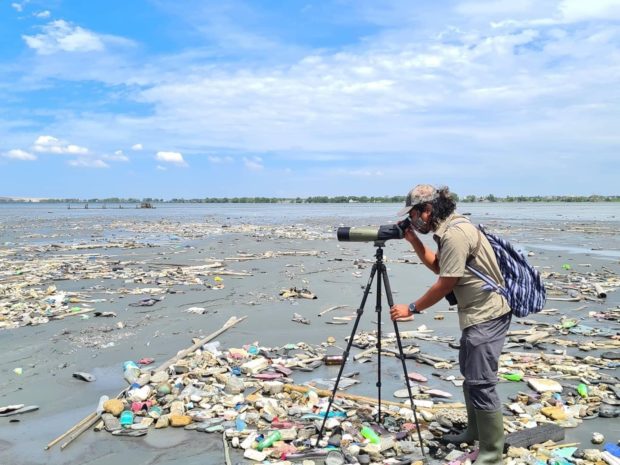12 million pieces of marine litter found in Manila Bay, study says

FILE PHOTO: Garbage litters part of Manila Bay some distance away from the dolomite beach. Photo courtesy of Diuvs de Jesus/Oceana Philippines
MANILA, Philippines — Around 12 million pieces of marine litter were collected in Manila Bay, a new study conducted by the environmental group EcoWaste Coalition, Korean International Cooperation Agency, De La Salle University-Dasmariñas, and the Department of Environment and Natural Resources showed.
Citing from their study entitled “Marine Litter Monitoring Survey in Manila Bay: Year 1 (2023),” EcoWaste said in a statement on Thursday that 90 percent of the collected trash is plastic litter — majority of which are single-use plastics (SUPs).
READ: 10 Quezon City stores called out for selling cosmetics with mercury
“Through quantitative comparative research covering 10 areas in the National Capital Region, Region 3, and Region 4A, the study concluded that Around 90% of all collected marine litter along the coastline areas are different types of plastic. Most of them are single-use utensils, sachets, and wrappers,” the group said.
Meanwhile, it added that “11 million out of 12 million estimated marine litter collected along the coast of Manila Bay are plastics.”
“The collected marine litter on the coastline of Manila Bay during dry and wet months did not show any significant difference in terms of counts and weight. It is estimated that nearly 60% of the weight of marine litter on the coastline of Manila Bay was from the weight of plastic litter. Fiber, film, and hard plastics have a combined weight of more than 240 metric tons,” EcoWaste said.
Article continues after this advertisementREAD: EcoWaste to Manila malls: Stop selling mercury-containing cosmetics
Based on these findings, the group pointed out how the study confirmed the country’s dependence on SUPs. It likewise warned the public that SUPs threaten human health and the environment.
“We are alarmed that marine litter, mostly from single-use plastics, is stuck in the coastal areas of Manila Bay. The study shows that we have a long way to go to eliminate the ubiquitous problem of single-use plastics and marine litter as a whole,” said Von Vladimir Defuntorum, project lead of Enhancement of Marine Litter Management in Manila Bay, Philippines (2021-2025) Project, Ecowaste Coalition. — Melanie Tamayo, intern